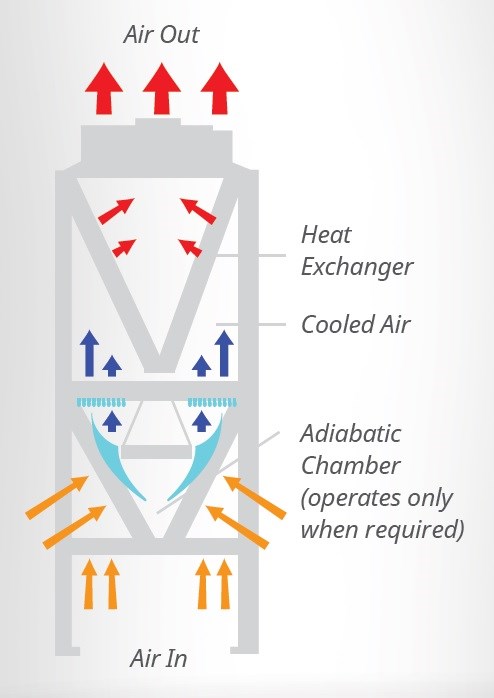"The United Nations Department of Economic and Social Affairs states that water scarcity affects every continent and that about 1.2 billion people live in areas of physical scarcity,” says Frigel Global Marketing Manager, Al Fosco. He continues, "The United Nations’ World Water Development Report warns that the world could suffer a 40 percent shortfall in water supply by 2030 – and that global water demand for the manufacturing industry is expected to increase by 400 percent from 2000 to 2050."
In a recent survey, conducted by Frigel, water conservation was ranked a top concern by nearly two-thirds of respondents and 30 percent said that process cooling accounts for more than half of their plant's overall water usage. This, according to Frigel, drives the need for continued awareness about the positive impact advanced process cooling systems can have on water savings and the ability to achieve operational efficiencies.
According to the survey, many companies look to advanced closed-loop process cooling systems to deliver pragmatic business results. Process cooling is extremely or quite important to plant efficiencies to 58.6 percent of respondents. It’s also clear that companies appreciate how the technology contributes to sustainability initiatives.
Survey respondents said they chose the technology to improve costs, increase machine uptime and produce higher quality products. Yet they also chose it to conserve water, which is in line with the growing concern over the importance of water use and the care needed to preserving it. The goal is to continue to ensure that people understand that closed-loop process cooling systems can be part of the solution to smarter water use, in addition to plant efficiencies.
Related Content
-
Jordan Robertson, VP, Business Development and Marketing for StackTeck discusses various mold technologies to improve efficiencies in automation, cooling, lightweighting and sustainability.
-
A review of the considerations and adaptations required to design hot runners and implement highly productive injection molding operations.
-
Oerlikon HRSflow North America Sales Director Robert Harvey breaks down hot runner technology that addresses sustainability opportunities and challenges.











